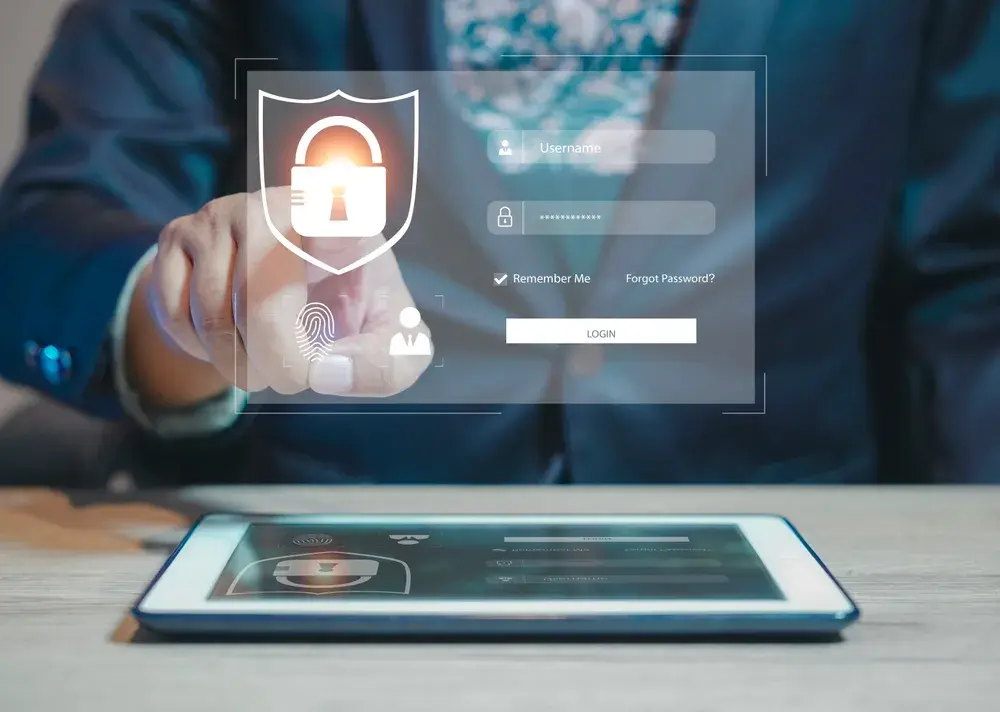Is your practice struggling to overcome operational bottlenecks despite trying everything from hiring extra staff to outsourcing certain tasks? A reliable healthcare practice management software might be the answer...
Imagine skimming through a pile of paperwork, regulations, and deadlines every day. This is the reality for credentialing specialists who guarantee that healthcare providers meet the necessary qualifications and standards. They play a crucial role in maintaining the integrity and quality of healthcare services, but their job is far from easy.
Despite the importance of their work, specialists face numerous challenges that can hinder efficiency and accuracy. From managing vast amounts of documentation to keeping up with constantly changing regulations, the obstacles can make credentialing experts lose track quickly.
Integrating advanced EHR software, like PracticeEHR, can significantly ease these challenges. By streamlining the credentialing process, reducing manual errors, and improving compliance, Practice EHR provides credentialing specialists with the tools they need to perform their duties more efficiently and effectively. In this blog, we explore the common issues faced by credentialing experts and how the right EHR software can help overcome them.

Common Issues Faced by Credentialing Specialists
Credentialing experts encounter several challenges in their efforts to make sure healthcare providers are properly accredited and meet regulatory standards. These issues can complicate the credentialing process and impact the efficiency of healthcare delivery. Here are some of the challenges faced by specialists:
- Managing Extensive Paperwork
Credentialing involves handling vast amounts of paperwork. Specialists must gather and verify documents like licenses, certifications, and employment history. For example, a specialist working in a large hospital may need to manage hundreds of documents for multiple providers, which can be overwhelming and prone to errors.
- Keeping Track of Complex Regulations
Healthcare regulations are constantly evolving, which makes it difficult for credentialing experts to stay up-to-date. Specialists must make sure that providers comply with federal, state, and local regulations. A specialist might struggle to keep track of these changes, which can lead to potential compliance issues and delays in the credentialing process.
- Verifying Provider Information
Verifying the accuracy of provider information is a critical yet challenging task. Specialists need to confirm details such as education, training, and work history. For example, a specialist might spend hours contacting previous employers and educational institutions, which can be time-consuming and tedious.
- Ensuring Timely Credentialing
Delays in the credentialing process can affect a healthcare provider's ability to deliver care. Specialists must ensure that all necessary steps are completed promptly. For example, a specialist may face pressure from both providers and healthcare administrators to expedite the process, which can be stressful and demanding.
- Handling Data Security and Confidentiality
Protecting sensitive information is crucial in the credentialing process. Specialists must ensure that personal and professional data is stored securely and accessed only by authorized personnel. A specialist might worry about potential data breaches or unauthorized access, which could compromise the integrity of the credentialing process.
Practical Solutions for Credentialing Specialists
Addressing the common challenges faced by credentialing specialists requires implementing practical solutions that streamline the credentialing process, ensure compliance, and improve data security. Here are some effective strategies to overcome these obstacles:
- Leveraging EHR Software for Paperwork Management
Implementing EHR software can significantly reduce the burden of managing extensive paperwork. These systems allow specialists to digitize and organize documents efficiently. For example, a large hospital can transition from manual record-keeping to a digital system, making it easier to access and verify provider credentials swiftly. This approach minimizes errors and speeds up the credentialing process.
In addition, EHR software can automate document tracking and reminders, which make sure that no critical paperwork is overlooked. This automation helps specialists stay on top of deadlines and regulatory requirements, which ultimately leads to a more streamlined and reliable credentialing process.
- Staying Updated with Regulatory Changes
To navigate complex regulations, credentialing experts can subscribe to industry newsletters, attend relevant webinars, and participate in professional networks. These resources provide timely updates on regulatory changes and best practices. For example, a specialist who regularly attends healthcare compliance seminars can stay informed about new federal and state regulations affecting credentialing.
Additionally, using specialized software that integrates updates on regulatory changes can help specialists quickly adapt their processes to remain compliant. This proactive approach reduces the risk of non-compliance and guarantees that all credentialing activities meet current standards.
- Implementing Automated Verification Tools
Automated verification tools can simplify the process of confirming provider information. These tools can cross-check data against multiple databases, reducing the need for manual verification. For example, a credentialing specialist using automated verification software can quickly validate a provider's education and employment history, saving hours of work.
Moreover, automated tools can flag discrepancies and prompt further investigation, which helps ensure the accuracy and reliability of information. This approach also improves the credibility of the credentialing process and builds trust with healthcare providers and administrators.
- Employing Project Management Techniques
Effective project management techniques can help with timely credentialing. Credentialing specialists can use project management software to track tasks, set deadlines, and monitor progress. For instance, a specialist can create a detailed timeline for each provider's credentialing process, identifying critical milestones and potential bottlenecks.
By regularly reviewing progress and adjusting timelines as needed, specialists can prevent delays and make sure that credentialing is completed efficiently. This approach also facilitates better communication and coordination among team members, which also leads to more effective credentialing outcomes.
- Improving Data Security Measures
Strengthening data security measures is crucial for protecting sensitive information. Credentialing specialists should implement powerful encryption protocols and access controls to protect data. For example, using a secure all-in-one EHR system, like PracticeEHR, with multi-factor authentication can prevent unauthorized access to provider information.
Additionally, regular security training for staff can help ensure that everyone understands the importance of data protection and follows best practices. By prioritizing data security, specialists can maintain the integrity and confidentiality of the credentialing process.

Practice EHR - The Best EHR Software for Credentialing Specialists!
The complexities of credentialing require reliable and efficient solutions. PracticeEHR stands out as the best EHR software for credentialing, offering advanced tools that streamline documentation, automate verification, and guarantee compliance with ever-changing regulations. With Practice EHR, credentialing specialists can manage their tasks more effectively, reducing administrative burdens and improving overall efficiency.
Moreover, Practice EHR's comprehensive features, such as secure data management and project tracking, provide credentialing experts with the support they need to navigate the intricacies of their role. By choosing Practice EHR, healthcare organizations can ensure a smoother credentialing process, ultimately leading to better patient care and operational success. Choose Practice EHR and experience the difference in your credentialing workflow today! Schedule a demo with us now!
Topics: Patient Care, EHR Solution, Specialty-Specific EHR, digital age, Industry Update, Medical Billing, Medical billing services, RCM, EHR, Technology in Healthcare, Medical Credentialing, Kiosk, EHR Features
RECENT POSTS



TOPICS
- EHR Solution (191)
- EHR (124)
- digital age (117)
- Patient Care (116)
- Medical Billing (110)
- Specialty-Specific EHR (110)
- Industry Update (97)
- Technology in Healthcare (84)
- EHR Features (79)
- Small Practice (77)
- Medical billing services (72)
- HIPAA Security (62)
- Integrated EHR (62)
- RCM (62)
- New Technology (44)
- Cloud-based EHR (43)
- Telemedicine (42)
- Healthcare Office Management (40)
- Practice EHR News (38)
- Kiosk (31)
- Revenue Cycle Management (28)
- AI Solutions (23)
- ePrescribing (21)
- AI Scribing (16)
- Best EHR Software (16)
- EMR (12)
- Practice Management Software (12)
- AI-powered Medical Billing (10)
- Client Favorites (10)
- Practice Automation (10)
- TeleVisit (10)
- The ONE (10)
- AI EHR (9)
- Switching to New EHR (9)
- MACRA/MIPS (8)
- Patient Portal (8)
- Urgent Care (8)
- AI Scribe (7)
- Best EHR Practice (7)
- EHR Integration (7)
- Psychiatry EHR (7)
- E-Prescribing (6)
- Product Updates (6)
- events (6)
- AI scanning (5)
- MIPS (5)
- Automated Health Tools (4)
- HIPAA (4)
- Insider (4)
- Internal Medicine EHR (4)
- MIPS Reporting (4)
- Mobile EHR (4)
- Orthopedics EHR (4)
- Podiatry (4)
- Podiatry EHR (4)
- Telehealth Platform (4)
- Chiropractic EHR (3)
- Digital Experiences (3)
- EHR Flaws (3)
- EHR Implementation (3)
- EHR for Chiropractors (3)
- EHR for Small Practices (3)
- Family Medicine EHR (3)
- Integrated Practice Management (3)
- Medical Practice Management Software (3)
- Patient Check-in Kiosk (3)
- PracticeEHR GO App (3)
- Regulatory Updates (3)
- Telehealth Platforms (3)
- Clearinghouse (2)
- Dermatology EHR (2)
- EHR Scheduling (2)
- Eligibility Verification in Medical Billing (2)
- Foot and Ankle Care (2)
- Foot and Ankle EHR (2)
- Health records 101 (2)
- Medical Coding Services (2)
- Medical Credentialing (2)
- Multilingual AI Scribe (2)
- Quality of Patient Care (2)
- Reporting Under MIPS (2)
- Risk and Liability in Medical Settings (2)
- What Works Clearinghouse (2)
- AI Scan (1)
- Bariatric EHR (1)
- Behavioral Health Practices (1)
- Billing Communication (1)
- Billing for Private Practices (1)
- Cardiology EHR (1)
- Cash Flow (1)
- Cashless Payments (1)
- Charting (1)
- Data Security (1)
- Dos and Don'ts (1)
- EHR Guides (1)
- EHR KPIs (1)
- EHR Questions to Ask (1)
- EHR Transition (1)
- EHR for Chronic Illness (1)
- EMR vs EHR Difference (1)
- ENT EHR (1)
- Endocrinology EHR (1)
- Family Medicine (1)
- Gastroenterology (1)
- Gastroenterology EHR (1)
- General Surgery EHR (1)
- Geriatric AI scribe (1)
- Geriatrics EHR (1)
- Guides (1)
- Healthcare Compliance Certification (1)
- Healthcare Practice Office Management (1)
- Help Center Videos (1)
- Insurance Reimbursement (1)
- KPI (1)
- Key Performance Indicators (1)
- Lab Processing (1)
- MACRA (1)
- Medical Billing Partner (1)
- Nephrology EHR (1)
- Neurology EHR (1)
- Pain Management EHR (1)
- Pediatrics EHR (1)
- Physical Therapy EHR (1)
- Practice Cash Flow (1)
- Practice Efficiency (1)
- Pulmonology EHR (1)
- Reconsider Your EHR (1)
- Simplify Practice Management (1)
- Staffing in Healthcare (1)
- Switch Medical Billing Providers (1)
- Urgent Care Medical Billing (1)
- Urology EHR (1)
- Voice-Activated AI Scribe (1)
- insurance claim denials (1)








